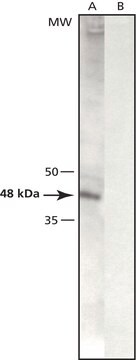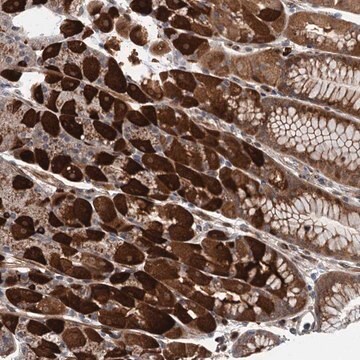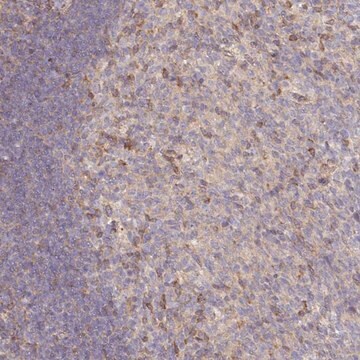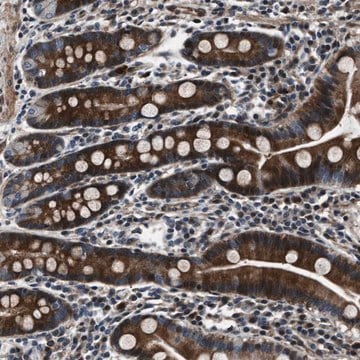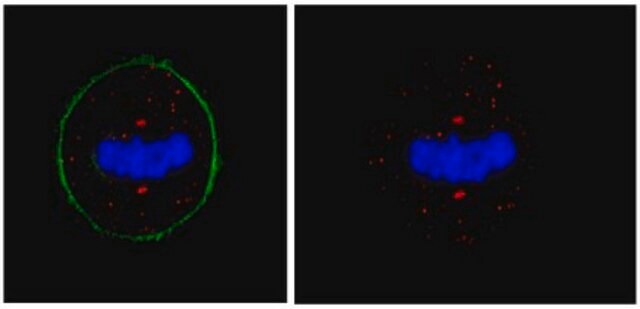T6557
Anti-γ-Tubulin antibody, Mouse monoclonal
clone GTU-88, ascites fluid
Sinónimos:
Anti-γ-Tubulin antibody, Mouse monoclonal
About This Item
Productos recomendados
biological source
mouse
Quality Level
conjugate
unconjugated
antibody form
ascites fluid
antibody product type
primary antibodies
clone
GTU-88, monoclonal
mol wt
antigen 48 kDa
contains
15 mM sodium azide
species reactivity
rat, hamster, chicken, human, bovine, canine, Xenopus, mouse
technique(s)
immunocytochemistry: 1:5,000-1:10,000 using HeLa cells
indirect ELISA: suitable
western blot: 1:10,000 using cultured chicken fibroblast extract
isotype
IgG1
UniProt accession no.
application(s)
research pathology
shipped in
dry ice
storage temp.
−20°C
target post-translational modification
unmodified
Gene Information
human ... TUBG1(7283)
mouse ... Tubg1(103733)
rat ... Tubg1(252921)
¿Está buscando productos similares? Visita Guía de comparación de productos
General description
Monoclonal Anti-γ-Tubulin (mouse IgG1 isotype) is derived from the GTU-88 hybridoma produced by the fusion of mouse myeloma cells and splenocytes from an immunized mouse.
Specificity
Immunogen
Application
Monoclonal Anti-γ-Tubulin is also suitable for use in immunochemical applications such as immunoblotting, immunocytochemical staining of cultured cells and in ELISA.
Biochem/physiol Actions
Physical form
Storage and Stability
Disclaimer
¿No encuentra el producto adecuado?
Pruebe nuestro Herramienta de selección de productos.
Storage Class
10 - Combustible liquids
wgk_germany
WGK 3
flash_point_f
Not applicable
flash_point_c
Not applicable
Certificados de análisis (COA)
Busque Certificados de análisis (COA) introduciendo el número de lote del producto. Los números de lote se encuentran en la etiqueta del producto después de las palabras «Lot» o «Batch»
¿Ya tiene este producto?
Encuentre la documentación para los productos que ha comprado recientemente en la Biblioteca de documentos.
Los clientes también vieron
Artículos
Microtubules of the eukaryotic cytoskeleton are composed of a heterodimer of α- and β-tubulin. In addition to α-and β-tubulin, several other tubulins have been identified, bringing the number of distinct tubulin classes to seven.
Nuestro equipo de científicos tiene experiencia en todas las áreas de investigación: Ciencias de la vida, Ciencia de los materiales, Síntesis química, Cromatografía, Analítica y muchas otras.
Póngase en contacto con el Servicio técnico







